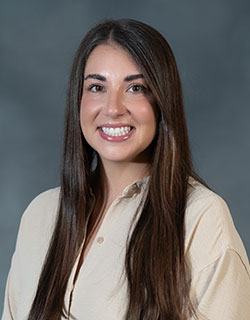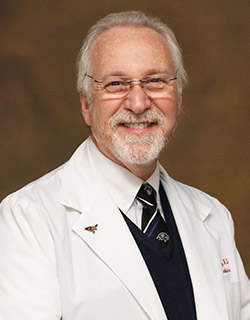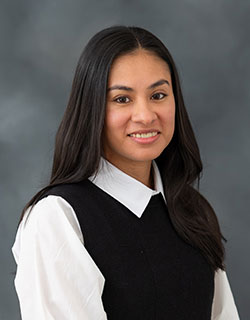Could a Hearing Screening Lessen Your Risk for Dementia?
September 12, 2022
Researchers have dedicated resources in recent years to studying dementia and other brain disorders. Their $818 billion price tag is debilitating the healthcare industry in the United States, affecting not only those with cognitive decline, but their caregivers as well.
Increased risk factors for dementia can be lifestyle choices such as lack of physical activity and tobacco use or chronic illnesses such as diabetes or hypertension. But, according to the Lancet (an independent weekly medical journal founded in the early 1800s), the No. 1 most modifiable risk factor that contributes to dementia is hearing loss. According to Johns Hopkins Hospital, people with a severe hearing impairment were five times more likely to develop dementia.
The earlier the detection of hearing loss, the better the outcome, which is why Director of Audiology at GBMC, Regina Presley, Au.D., FAAA, CCC/A, and her team are being proactive about making sure GBMC Health Partners Primary Care patients and patients with diabetes get a screening.
“Our No. 1 goal is to educate patients about the important of hearing health and factors that are linked to hearing loss,” Dr. Presley said. “GBMC is designing a multidisciplinary approach so we can meet patients where they are, perform a baseline screening, refer as necessary, and monitor or manage their individual needs accordingly.
This collaborative, comprehensive care approach is being piloted in partnership with Dr. Kevin Ferentz, Chair of Family Medicine at GBMC and a family medicine physician at GBMC Health Partners Primary Care—Owings Mills. Any primary care patient over the age of 50 will automatically receive a hearing screening and will be referred to GBMC Audiology if further intervention is required.
Dr. Presley is also working with nutrition educators at the Geckle Diabetes & Nutrition Center at GBMC due to the known link between hearing loss and diabetes.
“I was sadly unaware hearing loss is twice as common in those that are living with diabetes, but I was not surprised. It is amazing to me that there is such a simple solution to ensure you can hear well, that can help decrease your chances of cognitive decline, but so few people are taking advantage of that resource,” Rebecca Denison, RD, LDN, CDE, Registered Dietitian and Certified Diabetes Educator for the Geckle Center, said.
“Diabetes is a challenging disease to navigate and a disease that can have some serious consequences. If we can give our patients information about their risk of developing hearing loss and cognitive decline, and also give them a screening resource to determine if they need to do anything in their particular situation, then we are giving the care we would want for our own loved ones.”
According to the American Diabetes Association, “A recent study found that hearing loss is twice as common in people with diabetes as it is in those who don't have diabetes. Also, of the 133 million adults in the United States who have prediabetes, the rate of hearing loss is 30 percent higher than in those with normal blood glucose (blood sugar).” Nutrition educators at Geckle will be conducting hearing screenings through the ease of an app for a quick screening of hearing sensitivity in their patients diagnosed with diabetes and prediabetes.
Through the course of these pilots, Dr. Presley will be monitoring the occurrence of hearing loss in patients with diabetes as well as other co-morbidities such as heart disease, hypertension and kidney functioning to determine any potential connections. Dr. Presley is part of a national audiology collaborative in which other healthcare systems are conducting similar pilots. All data collected will be collated and presented to the United States Preventive Services Task Force with the hope of gaining support to improved hearing health access for all patients.
It’s important to keep in mind aging and co-morbidities are not the only causes of hearing loss. Noise exposure, medications, trauma, and genetics can all contribute to hearing loss. Dr. Presley reports that the growing population for hearing loss are patients 12-19 years old.
Undiagnosed hearing loss persists for a variety of reasons—fear of stigmatization, decline is gradual, or there is an assumption that hearing loss is a natural part of the aging process. No matter the reason, a routine hearing screening is a simple solution in preventing what could potentially be cascading health issues in the future.
“Only 10% of people eligible for a cochlear implant have one,” Dr. Presley said. “We have effective technology that, when utilized early and appropriately, can improve communication, safety, overall health, and quality of life.”
Through this partnership, primary care, nutrition, and audiology at GBMC are taking a proactive approach to education, monitoring, and management as needed for those with any degree of hearing loss. It is this comprehensive approach to care that patients appreciate and expect from their providers at GBMC.








